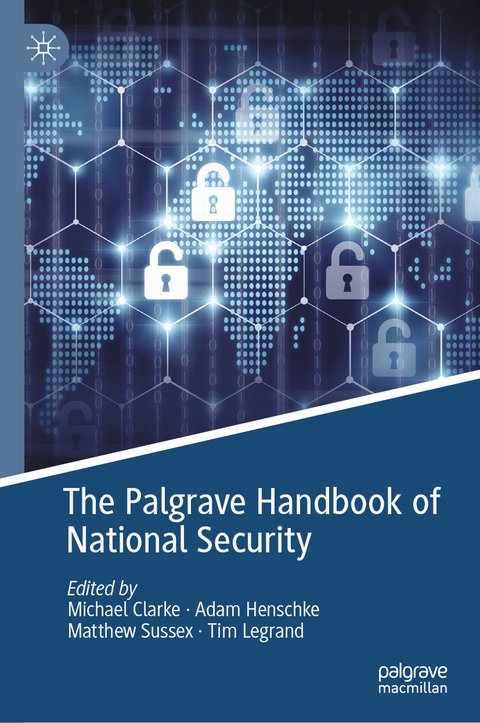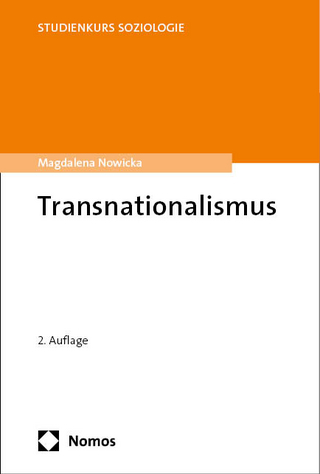
The Palgrave Handbook of National Security
Springer International Publishing (Verlag)
978-3-030-53493-6 (ISBN)
This handbook provides a comprehensive analysis of the contemporary theory, practice and themes in the study of national security.
Part 1: Theories examines how national security has been conceptualised and formulated within the disciplines international relations, security studies and public policy.
Part 2: Actors shifts the focus of the volume from these disciplinary concerns to consideration of how core actors in international affairs have conceptualised and practiced national security over time.
Part 3: Issues then provides in-depth analysis of how individual security issues have been incorporated into prevailing scholarly and policy paradigms on national security.
While security now seems an all-encompassing phenomenon, one general proposition still holds: national interests and the nation-state remain central to unlocking security puzzles. As normative values intersect with raw power; as new threats meet old ones; and as new actors challenge established elites, making sense out of the complex milieu of security theories, actors, and issues is a crucial task - and is the main accomplishment of this book.Michael Clarke is Associate Professor at the National Security College, Australian National University, and Director of the ANU-Indiana University Pan-Asia Institute. His main research specialisations are the history and politics of the Xinjiang Uyghur Autonomous Region, People's Republic of China (PRC), Chinese foreign policy in Central Asia, Central Asian geopolitics, American grand strategy and foreign policy, and nuclear proliferation and non-proliferation. He is the author of Xinjiang and China's Rise in Central Asia - A History (2011) and Australian Nuclear Policy: Reconciling Strategic, Economic and Normative Interests (with Andrew O'Neil and Stephan Fruhling, 2015); editor of Inside Xinjiang: Analysing Space, Place and Power in China's Muslim North-West (with Anna Hayes, 2016); editor of Terrorism and Counterterrorism in China: Domestic and Foreign Policy Dimensions (2018); and editor of The Belt and Road Initiative and the Future of Regional Order (with Matthew Sussex and Nick Bisley, 2020). His commentary has also been published by Foreign Policy , The Wall Street Journal , CNN , BBC News , and The Diplomat , amongst others. Adam Henschke is an applied ethicist, working on areas that cross over between ethics, technology and security. He is a senior lecturer at the National Security College (NSC), Australian National University, where he teaches on ethics and military technologies, the ethics of national security, and diseases and national security. His research concerns ethical and philosophical analyses of technologies and their uses, military ethics and on relations between ethics and national security. He has published on surveillance, ethics of cybersecurity, emerging military technologies, intelligence and the Internet of Things. His recent research includes funded projects on the ethics of counter-terrorism, the moral foundations of just intelligence institutions, and the emerging challenges to liberal democracies from foreign influence, interference and intelligence operations. He is the author of Ethics in an Age Of Surveillance , (2017) and editor of Binary Bullets: The Ethics of Cyberwarfare (with Fritz Allhoff and Bradley Strawser, 2016). Matthew Sussex is Associate Professor at the National Security College, Australian National University. His main research specialisations encompass Russian foreign and security policy, strategic studies, cyber-enabled information operations, energy security, and Australian foreign policy. He is particularly interested in contemporary trends in political warfare, especially in 'hybrid' conflict and in the evolution of propaganda. His recent solo or collaborative book projects include The Belt and Road Initiative and the Future of Regional Order (2020); Eurasian Integration, Central Asia and the New Geopolitics of Energy: Confrontation and Consolidation (2015); Power, Politics and Confrontation in Eurasia: Foreign Policy in a Contested Region (2015); Violence and the State (2015) and Conflict in the Former USSR (2012). Tim Legrand is Associate Professor at the University of Adelaide, Australia. His interdisciplinary research concerns the structures, agents and processes of international relations and public administration. His work draws on, and contributes to, political science, law, international relations, security studies and public policy around several research streams: the governance of national security; international policy transfer; transgovernmental policy networks; and emergency policy and crisis management. His research has been published in Public Administration , Political Studies , Review of International Studies , Security Dialogue , Policy Studies , British Politics , European Political Science , and the Journal of Comparative Polic
1. History and National Security (Michael Clarke, ANU).- 2. International Relations Theory and National Security (Matthew Sussex, ANU).- 3. Public Policy and National Security (Tim Legrand, University of Adelaide).- 4. Ethics and National Security (Adam Henschke, ANU).- 5. United States (Christopher Fettweis, Tulane University).- 6. UK (Michael Lister, Oxford Brookes University).- 7. China (Jingdong Yuan, University of Sydney).- 8. Russia (Matthew Sussex, ANU).- 9. India (Harsh V. Pant, Kings College).- 10. Japan (Yuki Tatsumi, Carnegie Endowment for International Peace).- 11. France and Germany (Bruno Tetrais).- 12. Turkey (Bill Park, Kings College).- 13. Saudi Arabia (Christopher Davidson, Institute for Middle Eastern and Islamic Studies, Durham University).- 14. Iran (Shahram Akbarzadeh, Deakin University).- 15. Brazil (Vinicius Rodrigues Vieira, Institute of International Relations, University of São Paulo).- 16. Nigeria (Signe Marie Cold-Ravnkilde, Danish Institute of International Affairs).- 17. Law, Regulation and National Security (Sarah Heathcote, ANU).- 18. WMD, proliferation and deterrence (Michael Cohen, ANU).- 19. Counter-Terrorism (Raffaello Pantucci, RUSI).- 20. Intelligence and National Security (Paul Burke, Delft University of Technology).- 21. Cybersecurity (TBC).- 22. Maritime security (Carolin Liss, Peace Research Institute Frankfurt).- 23. Energy security (Jennifer Hunt, National Security College, ANU).- 24. Biosecurity (Brett Edwards, Tom Hobson, and Neville Li, University of Bath).
| Erscheinungsdatum | 30.09.2021 |
|---|---|
| Zusatzinfo | XIII, 415 p. 3 illus., 1 illus. in color. |
| Verlagsort | Cham |
| Sprache | englisch |
| Maße | 155 x 235 mm |
| Gewicht | 805 g |
| Themenwelt | Sozialwissenschaften ► Politik / Verwaltung ► Europäische / Internationale Politik |
| Sozialwissenschaften ► Politik / Verwaltung ► Vergleichende Politikwissenschaften | |
| Schlagworte | Actors • biosecurity • cyber security • Energy Security • Intelligence • International Relations Theory • International Security • Issues • Maritime Security • national security • National Security Agency (NSA) • National security and ethics • National Security Council (NSC) • National Security policy • Non-Proliferation • Proliferation • terrorism • Theories • WMDs |
| ISBN-10 | 3-030-53493-6 / 3030534936 |
| ISBN-13 | 978-3-030-53493-6 / 9783030534936 |
| Zustand | Neuware |
| Haben Sie eine Frage zum Produkt? |
aus dem Bereich


